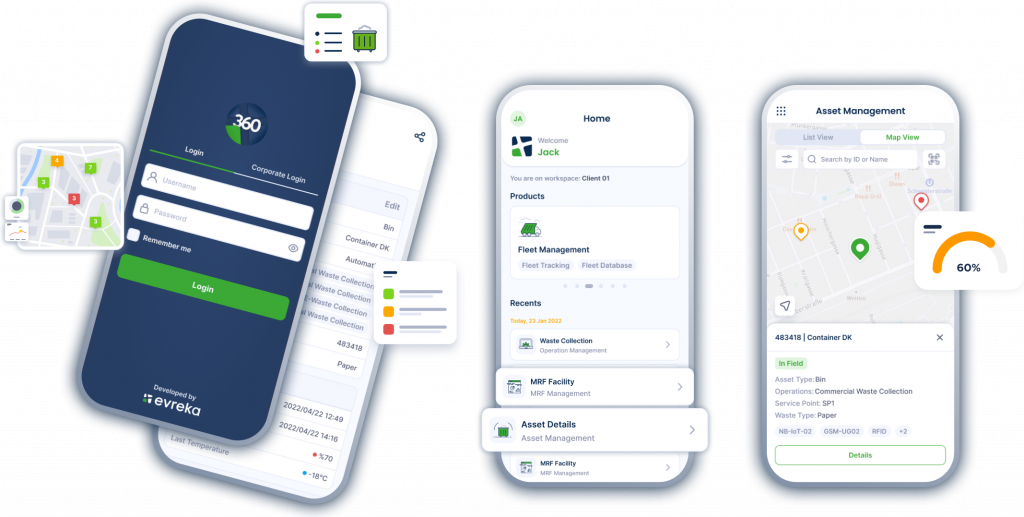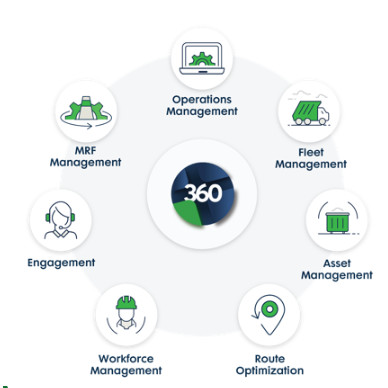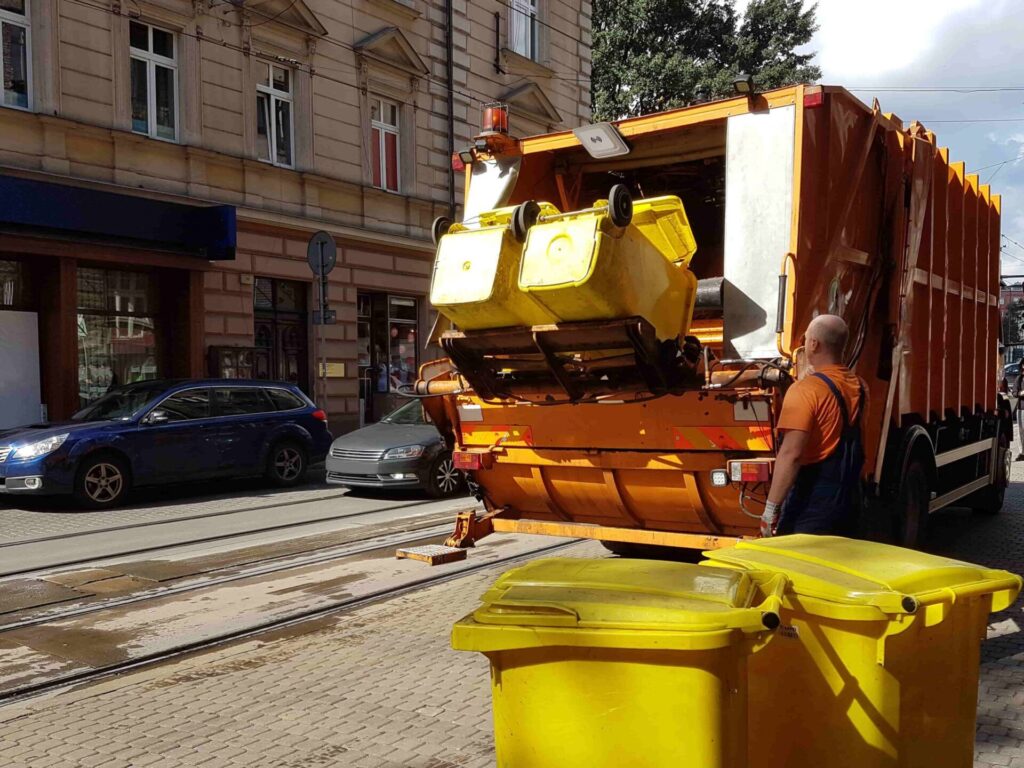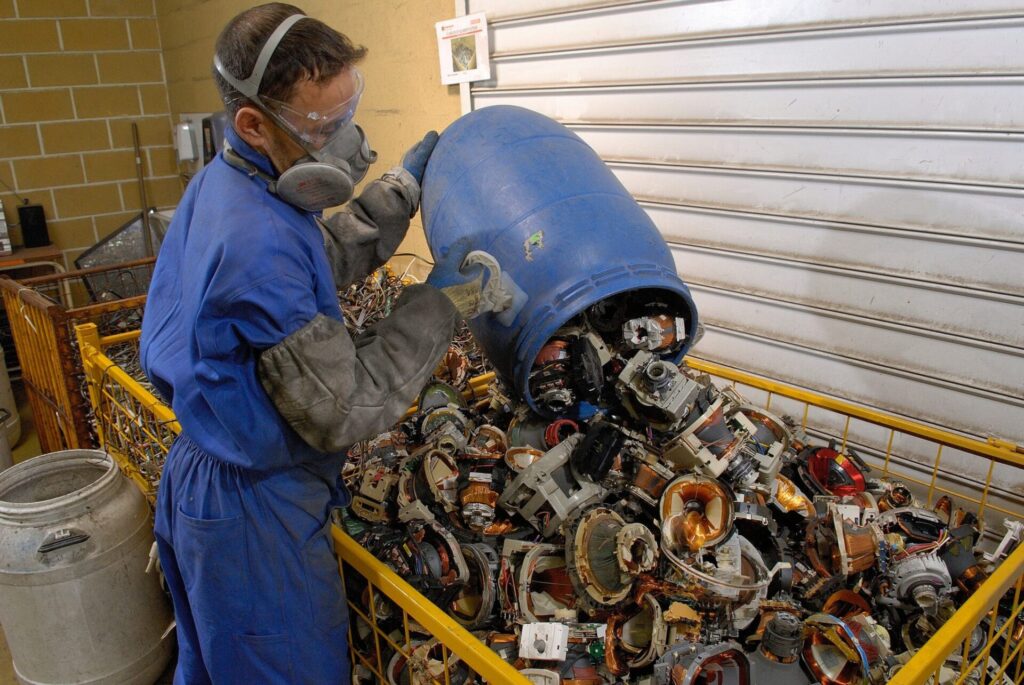Waste & material traceability solution for sustainable facilities

The global rise in waste volumes, coupled with stricter regulations and circular economy targets, is placing significant pressure on waste management companies and municipalities to improve the quality and efficiency of their operations. At the center of this challenge is the need to separate and recover materials effectively—ensuring that valuable resources are not lost, contamination is minimized, and landfill diversion targets are met. Traditional manual sorting methods often struggle to meet these demands. High contamination rates, inconsistent throughput, and elevated labor costs hinder both performance and profitability. In response, waste management entities—including municipalities, public service providers, and private contractors—are increasingly leveraging smart sensors to optimize how materials are collected, sorted, and tracked.
When integrated into broader operational systems, these tools deliver higher performance, real-time visibility, and data-driven insights that enable organizations to manage complex waste streams more efficiently and sustainably.
Sensor-based technologies serve as the connective layer between physical waste flows and digital operational oversight. Within the Evreka360 platform, multiple smart tools—such as fill-level sensors, GPS tracking, and RFID-based container identification— work together to offer a cohesive operational picture to automate data capture, enhance service verification, and provide end-to-end traceability across collection and sorting processes.
Fill-level sensors allow for real-time monitoring of container status, enabling timely collections, preventing overflows, and reducing unnecessary trips. This directly supports cleaner separation at the source and optimizes resource use in the field.
RFID Tagging, integrated into both bins and vehicles, supports automated recognition of collection events, reducing reliance on manual reporting and providing precise, auditable proof of service. This traceability also supports better planning, route execution, and regulatory compliance.

These systems offer several key benefits:
In combination, these tools improve the quality of material inputs to sorting facilities and help prevent issues such as overfilled bins, missed pickups, or misrouted vehicles—all of which degrade recovery performance and increase costs.
While sensor-based tools deliver standalone value, their full potential is unlocked when they are integrated into a cohesive waste management platform. Siloed data and disconnected workflows often result in inefficiencies that cancel out the benefits of automation.
Evreka360, a modular and cloud-based platform, provides this integration by unifying waste operations across departments and stakeholders. Built for scalability and automation, the platform allows municipalities and contractors to manage everything from field teams and asset inventories to service routes and recovery performance.

Relevant features for improving separation outcomes include:
This integrated approach ensures that sorted material quality is protected not just at the point of separation, but across the entire lifecycle—from bin to dispatch.

Sensor-based technologies are most effective when integrated into a holistic waste management strategy. Evreka360’s platform is designed to unify every stage of operations—from collection and transport to sorting and performance reporting—ensuring that data flows seamlessly and supports real-time decision-making.
One of the most impactful technologies within this ecosystem is RFID. Evreka’s RFID capabilities are natively embedded into Evreka360, enabling real-time service verification, accurate asset tracking, and automated reporting across the waste lifecycle.
Evreka’s latest eBook, “The Power of RFID in Overcoming Waste Management Inefficiencies,” explores how this technology supports:
Whether you’re managing municipal collection, commercial waste contracts, or regulated materials, RFID enhances visibility and consistency across sorting and collection workflows.
Download the eBook to explore how RFID can unlock measurable gains in your waste operations.

In the field, Evreka360 enables waste operators and public authorities to digitize workflows, enhance traceability, and improve sorting outcomes through real-time visibility and integrated planning. By connecting collection logistics, asset tracking, and material flow management, it ensures that separation efforts are supported consistently from source to facility.
A notable example is ALBA’s nationwide e-waste operation in Singapore. Appointed as the operator under the country’s Extended Producer Responsibility (EPR) framework, ALBA is responsible for managing the regulated collection and recycling of electronic waste. Using Evreka360, they deployed sensor-based monitoring and integrated modules for operations, fleet, asset, and MRF management—allowing them to:
This transformation enabled ALBA to shift from manual processes to a fully digital, insight-driven operation—reducing inefficiencies while supporting regulatory and environmental objectives.
Download the Full Case Study to see how ALBA uses Evreka360 to power sensor-based collection and recovery.

Sensor-based technologies are no longer optional in modern waste management—they are a foundational component of smart, circular operations. But their value depends on integration. Waste management organizations that embed these tools into a connected, intelligent platform like Evreka360 are gaining more than just automation—they’re gaining transparency, efficiency, and the operational agility needed to meet both regulatory and environmental expectations.
As demands on recovery rates, traceability, and reporting continue to rise, the integration of sensor technologies with data-centric platforms will define the next generation of high-performance, sustainable waste systems.
Contact us today for meeting Evreka’s sustainable and trusted state-of-the-art waste management world!